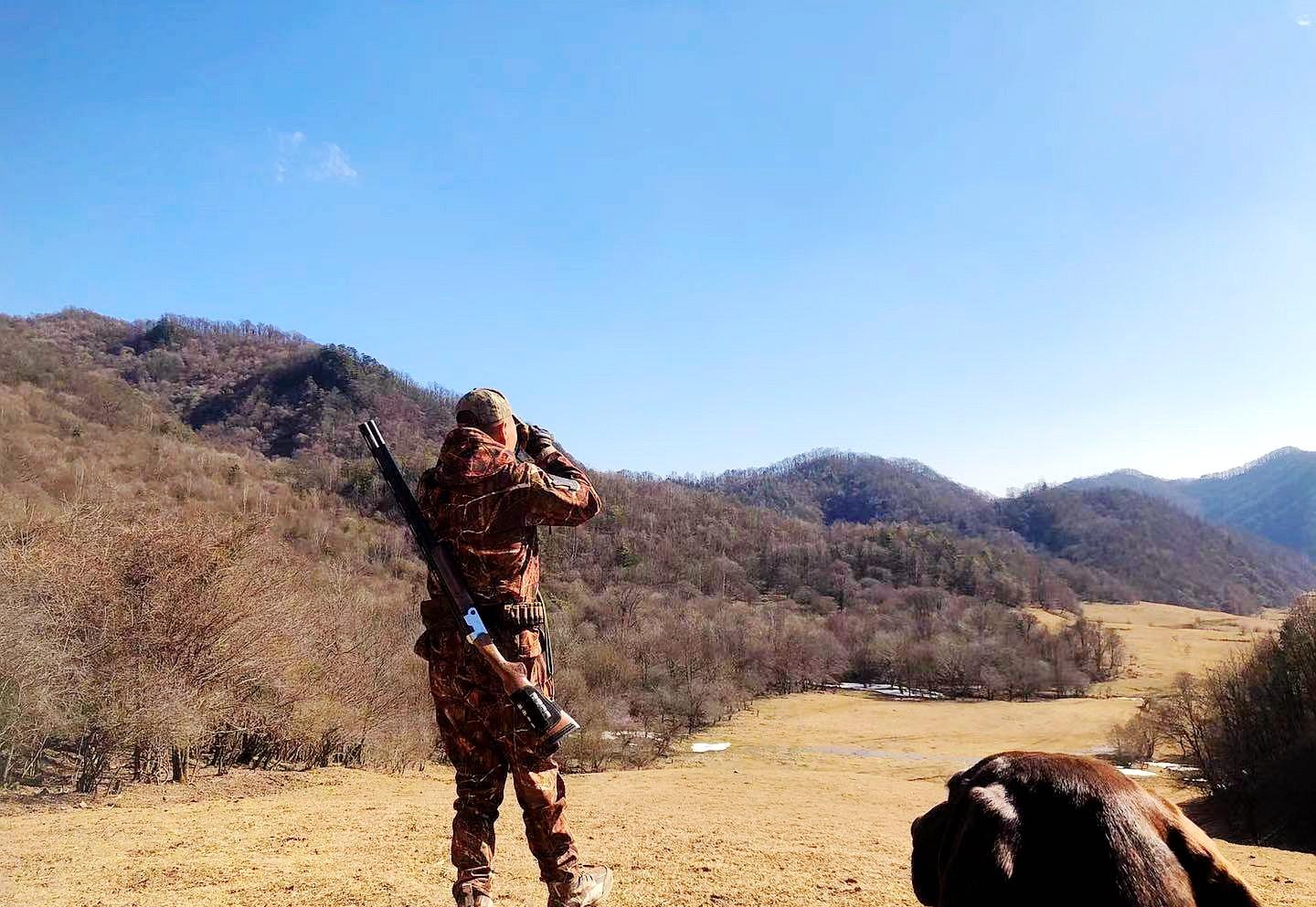In the hunter's hunting career, as he grows older and accumulates experience, he will become more and more aware of the importance of ethical hunting. In the process of understanding the morality of hunting, like the process of growing up a hunter, it will go through different stages. Today we come to talk about a key principle of moral hunting---- the 5 stages of fair chasing cognition.

Domestic legal hunting ground real shooting
What is the Fair Chase Principle? Simply put, it is to chase prey in a way that does not occupy any unfair advantage. There is a passage that fair chase is the cornerstone of moral hunting, which emphasizes the balance between hunter and prey, which allows the hunter to succeed occasionally, while the prey is generally able to escape being hunted. In hunting, fair chasing is both an individual moral code and a moral code for the entire hunting group, which is based on the principles and methods of hunting and is the basis for the formulation of many hunting laws and regulations.
First Order: Curiosity
For most hunters, the option to become a hunter is turned on at a very young age. Subsequently, in his curiosity and fascination with animals, he gradually grew. In the process of understanding, observing and approaching animals, the hunter's innate curiosity is satisfied, while at the same time bringing a sense of appreciation and respect, which is the cornerstone of hunting ethics. When we truly care about wildlife, we naturally make ethical choices.
The second order: valuing skills
To be a successful hunter, you need to continuously acquire relevant skills and experience. In this process, we must not only understand the animal behavior, habitat, food sources, social patterns, and reactions to humans, but also become familiar with hunting methods and weapons. Through continuous practice, familiarity with the functions of the weapons used and the abilities of the hunters themselves is not only the responsibility of each hunter, but also the basis for practicing the principle of fair chase.
The third order: success
Early success is important. At the beginning of the hunt, the prey that a novice hunter successfully hunted might be a chicken resting in a tree, a duck out of the water. While this is not necessarily in line with the spirit of fair chase, these behaviors are not illegal and are acceptable until these novice hunters gain patience and skill. Such timely, early successes would open the way for them to challenge the hunt in a higher-level way.
The fourth order: purpose-oriented
While everyone's reasons for hunting are different, these reasons are invariably influenced by higher-level purposes. At this stage, success remains key, but the reason, manner, and purpose of the hunt begins to influence our decisions. These purposes help us get the experience we want to seek and define success as something other than hunting prey.
The "inequisitive" nature of hunting is one of its most appealing points. Success is built on success, but at this stage, hunters begin to test their experience and skills with more challenging prey and conditions. Some people improve their challenges by limiting their ways, and bow hunting is a prime example. Selective hunting (e.g., only trophy-level prey) also increases challenge and fulfillment, which in turn is associated with purposeful hunting.
Fifth Order: Pure Hunting
At this stage, just going outdoors, going to the woods or in the wilderness, camping and hunting, brings satisfaction, and it does not matter whether or not you can harvest prey. Some people refer to this phase as the Sport Hunter or Mentor phase. At this stage, seeing or helping others harvest prey can replace one's own success and gain satisfaction. It was also at this time that the need to give back to the animals and the hunt itself became more and more intense. Passing on skills and knowledge to others is a reward and reward in itself.
Fair chase is a norm, it is a contract we make with ourselves. We are born with it and are constantly learning and understanding it from the experiences of others and ourselves.